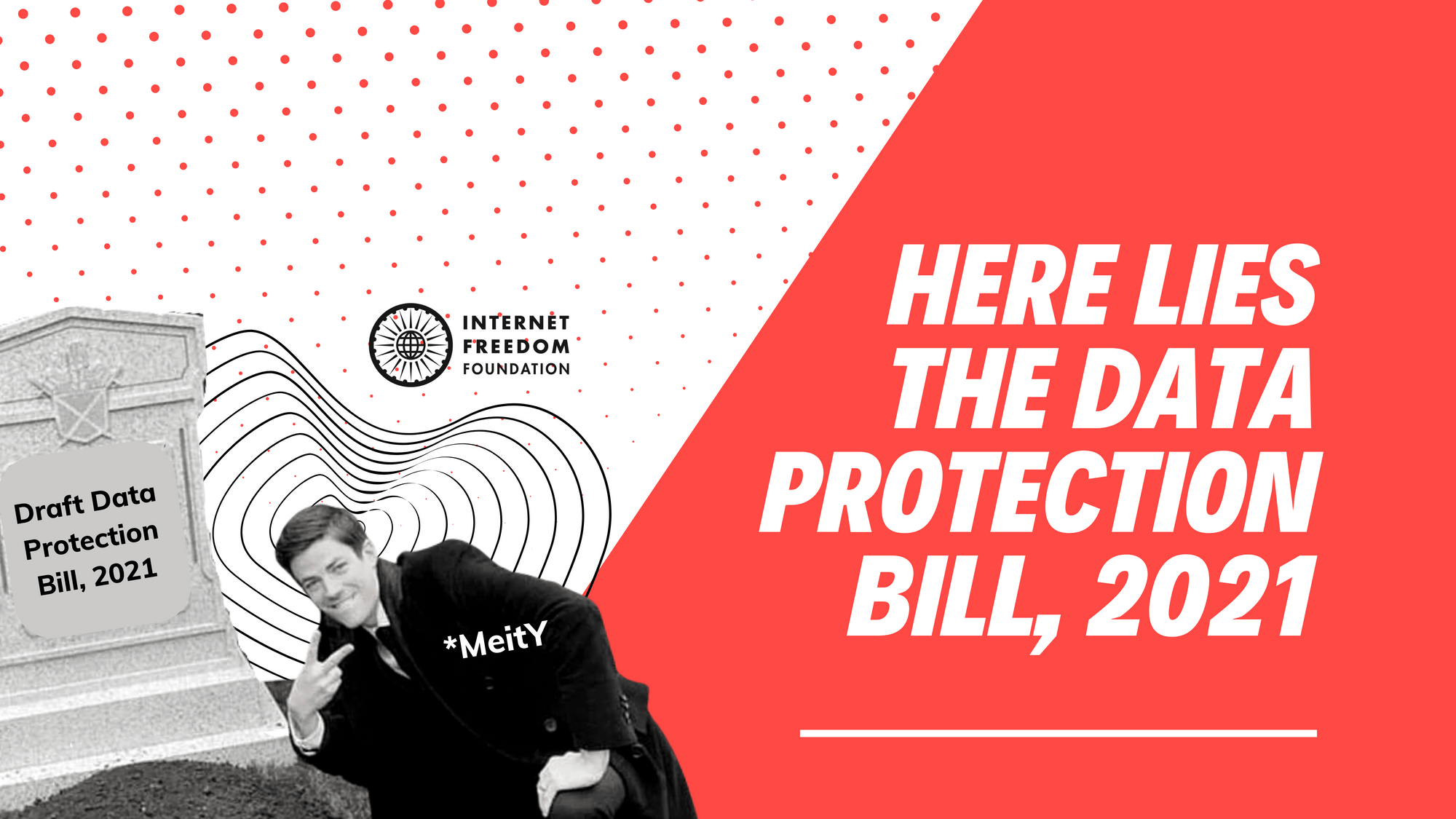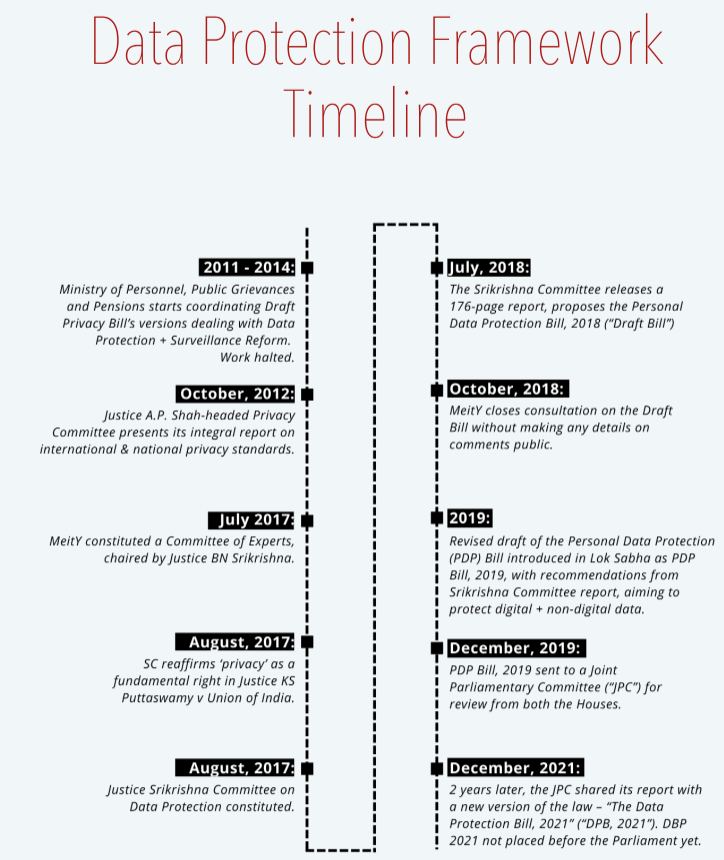
On August 3, 2022, the Minister for Communications and Information Technology, Ashwini Vaishnaw was granted permission to withdraw the draft Data Protection Bill, 2021 in the Lok Sabha. In the “reasons for withdrawal” shared with other Members of Parliament, including those who were a part of the Joint Parliamentary Committee on the Personal Data Protection Bill, 2019 (JPC), Vaishnaw has stated that the Bill was withdrawn to make way for a comprehensive legal framework for the digital ecosystem. This comprehensive legal framework is almost ready and will soon be made available for public consultation, Vaishnaw has stated in an interview dated August 4, 2022 with ET Tech.

The withdrawal of the draft Data Protection Bill, 2021 marks the unsatisfactory end of a long and arduous consultation and review process for the legislation. While the 2021 version was certainly not perfect, we are concerned that this withdrawal has now brought us closer to where we started in 2018 instead of where we should be in 2022 (Read our brief of the issues with the DPB, 2021 here). Further, we want to emphasise that 4 years of deliberations for the DPB, 2021, from the Srikrishna Committee Report to comments received through the public consultation and finally the 2021 JPC Report, are still useful. It is essential that these deliberations should serve to inform the government about the issues that various stakeholders, especially the civil society, want a data protection legislation to address. Today there exists no remedy for the violation of many digital rights that emerge from the expansive collection and procession of personal data for Indians.
The existing legal vacuum on data protection portends an Orwellian state and is clearly an infringement of the fundamental right to privacy. We hope that the government has taken into account previous deliberations while drafting the new comprehensive legal framework. Further, we hope that this legal framework will also be made available through a white paper listing out the issues it considers, has an independent & diverse group of experts and is put to extensive public consultation to ensure that protection of the rights of Indian citizens is the cornerstone on which this new legal framework is built. It has been close to 10 years since the A.P. Shah Committee Report on Privacy, 5 years since the Puttaswamy Judgement and 4 years since the Srikrishna Committee’s report — they all signal urgency for a data protection law and surveillance reforms. Each day lost, causes more injury and harm. As we await an open, trustworthy, and accountable public consultation process held in good-faith on this new framework with bated breath, we resolve to continue fighting for your privacy and other digital rights.

